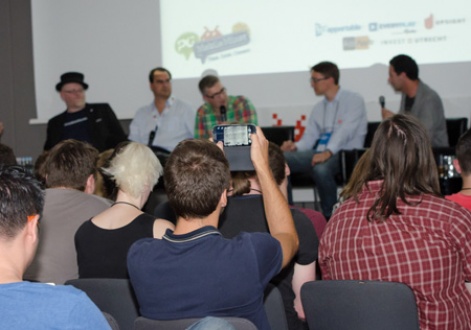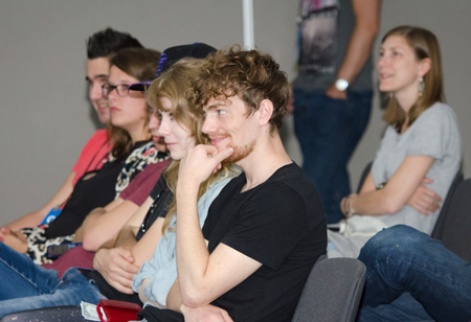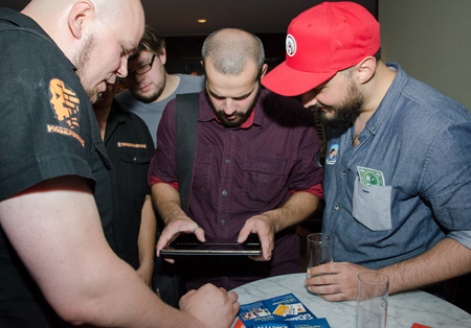You can always guarantee that, if you gather together a group of mobile luminaries into one room and ask them to talk mobile versus console, the conversation is going to get quite heated.
But for all the bravado about the mobile scene – notions that it trails in almost any regard other than raw processing power have long been left behind – there was an acknowledgement during Pocket Gamer's latest Mobile Mixer in Cologne that problems for developers remain.
"Mobile is still the red-headed step child at the moment, but not for much longer," offered Peter Alau of Apportable – one of five mobile experts to sit on the stage.
"There was a time when console was also the red-headed step child. This little Famicom thing that some company in Japan was making? Oh, come on, this isn't going to take off."
Horses for courses
Neverthless, Alau acknowledged that some of the major players who have traditionally made their name on console "still don't know what to do with mobile."

"Every new technology has to go through their horse-carriage period where they imitate what has gone before because that's all they know, but once they realise they don't need the horse anymore, they start making games that aren't imitative of what has gone before," he concluded.
Not that the biggest mobile games tend to mirror their console counterparts.
"It's pretty evident if we look at console and PCs that the biggest companies out there have gone the blockbuster way, much like Hollywood. So, if it's a hit it'll be tons of revenue, if it's a miss it'll be a big flop and the company is in trouble," said Gleb Fokin of Upsight.

"So what is different about mobile is the low barrier to entry – you can have a team of your high school friends and you make a great game that succeeds, you still have that option. There will be a lot of shit you have to sift through, but you have to thank the indie community for the big games that haven't happened on console.
"We have to accept that the people making the decisions will be making it in terms of profit and business size. If you can make a game that exploits a big IP and that can be played in five minute sessions, that's the perfect game."
But what is mobile's biggest strength? Matt Donnelley of Dutch Game Garden summed it up simply: "You don't have to go to a place to buy a box to play a game [on mobile]," he concluded.
Next steps
So what is next for mobile? Are games going to extend beyond five minute wonders?
Fredrik Wester of PC gaming specialist Paradox Interactive wants to see change.
"Mobile fits a window for people who want to play a game for 15-20 minutes. I think where I could go if I could choose is games you can play for five hours," he opened.
"Console has all the hardcore gamers and the big brands, but you reach so many people on mobile that you never reach on other platforms."

There are still problems with mobile in 2014, despite the draw of huge audiences, Wester continued.
"If you look at the revenue numbers on mobile in 2013, how many were released in 2013? Zero. People tend to play the same shit as they did in 2012, as they did in 2011, as they did in 2010. They is a stagnation on mobile that I'm really worried about – they're clogging the channels."
Patrick Kollmann of AddApptr disagreed, noting that on mobile it's still "easier to create a game and get it live, so while there's still huge competition, it's still easy.
He continued, "Once you get in the charts and you manage to stay there, is that because of the game or is it because you pay to stay there? That's the sort of question we need to ask."
Who better to end on a positive, however, than Oscar Clark of the now Unity-owned Applifier.

"We've seen this phenomenal explosion of skillsets over the last few years – companies like Supercell, for instance – and there's been a long learning curve of people learning the commercial side that console inspires," he concluded.
"But games have entered a mass market state. Through the social connections we have in games now, we now have the ability to attract every single gamer out there."
Thanks to our sponsors Everyplay & Unity, Apportable, Upsight, AddApptr and Invest Utrecht for helping us put on the Mixer in Cologne.
You can see the photos from the event on our Facebook page.





















